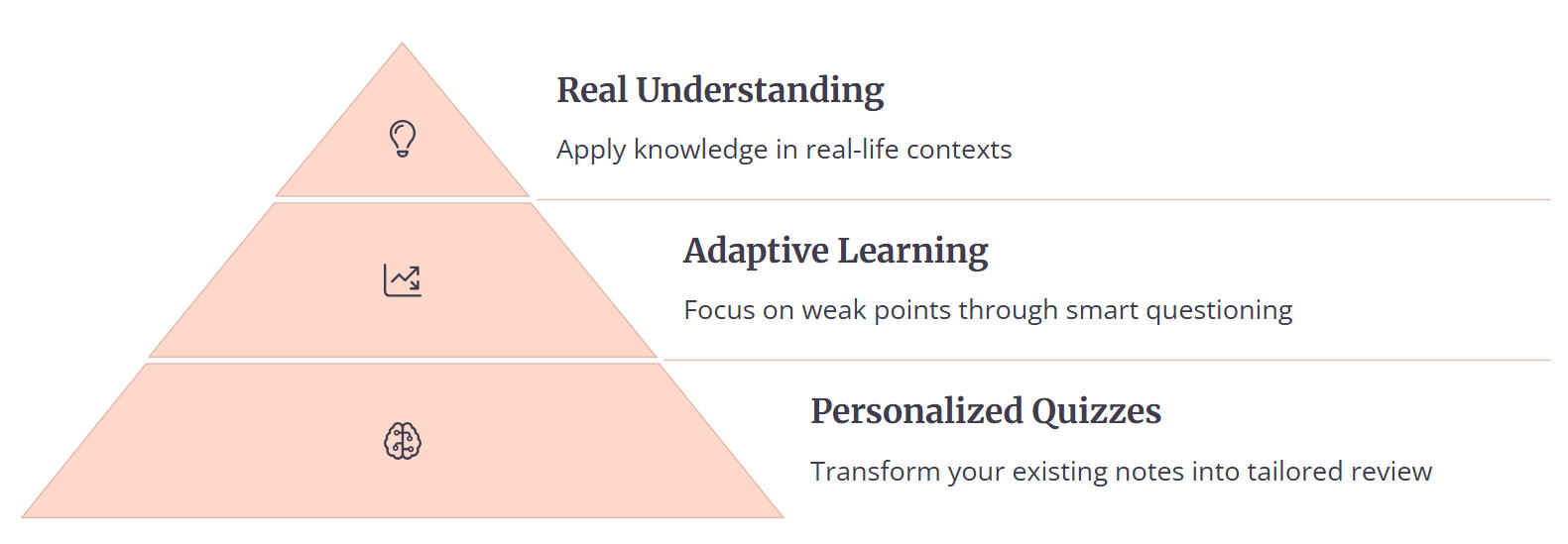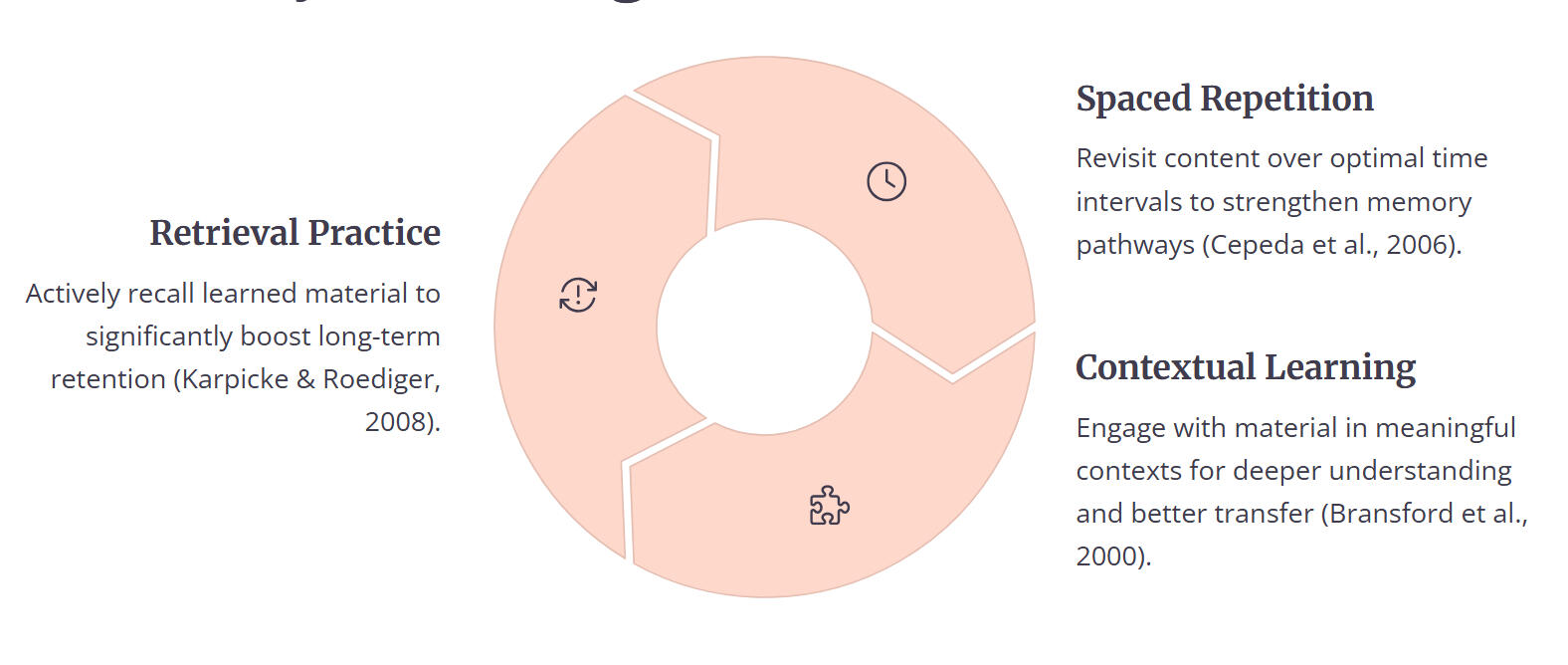
Note2Quiz
What if your notes could quiz you back?
Smarter review. Deeper understanding. Personalized for you.
Transform Your Notes Into Learning
🧠 AI-Powered
Advanced algorithms transform your personal notes into adaptive quizzes tailored to your unique learning journey.🎯 Personalized
Review what you need most—based on your actual learning materials, not someone else's curriculum.📱 Responsive
Clean, intuitive interface that works seamlessly across all your devices, wherever you study.
Unlock Your Learning Potential

Note2Quiz encourages long-term retention through reflective learning while supporting multilingual input/output in a clean, intuitive interface.
How We Compare
| Feature | Note2Quiz | Quizlet | Duolingo | Anki |
|---|---|---|---|---|
| Converts notes to quizzes | ✅ | ❌ | ❌ | ❌ |
| Adaptive feedback | ✅ | ❌ | 🔶 | ❌ |
| Context-aware explanations | ✅ | ❌ | ❌ | ❌ |
| For intermediate+ learners | ✅ | 🔶 | 🔶 | ✅ |
| Supports deeper learning | ✅ | ❌ | ❌ | 🔶 |
🔶 = Partially supported
Who Benefits Most
| 📘 Intermediate & Advanced Learners | Perfect for those who've mastered basics and want to deepen their language skills in specific areas relevant to their needs. |
| 🏡 Heritage Learners | Ideal for those in multilingual households looking to strengthen their connection to family languages with personalized practice. |
| 💼 Professionals | Helps adult learners in international workplaces master job-specific terminology and communication skills. |
| 📝 Test Preparation | Gives exam candidates (TOEFL, DELE, JLPT) targeted practice based on their own study materials. |
Backed By
Learning Science

Research References
1. Bransford, J. D., Brown, A. L., & Cocking, R. R. (2000)
How People Learn: Brain, Mind, Experience, and School.
Washington, DC: National Academy Press.
🔗 https://doi.org/10.17226/9853
This foundational work outlines how meaningful engagement with content in context is essential for deep learning and knowledge transfer.2. Cepeda, N. J., Pashler, H., Vul, E., Wixted, J. T., & Rohrer, D. (2006)
Distributed practice in verbal recall tasks: A review and quantitative synthesis.
Psychological Bulletin, 132(3), 354–380.
🔗 https://doi.org/10.1037/0033-2909.132.3.354
This research demonstrates how spacing out learning over time significantly improves long-term retention.3. Karpicke, J. D., & Roediger, H. L. (2008)
The critical importance of retrieval for learning.
Science, 319(5865), 966–968.
🔗 https://doi.org/10.1126/science.1152408
This groundbreaking study shows that the act of recalling information is more effective for learning than repeated studying.





